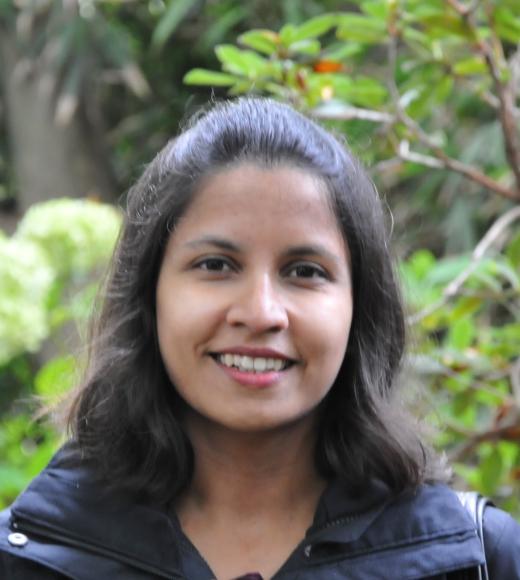
Position Title
University of Southern California
Prof. Shaama Sharada
Abstract
Dynamical evolution of atomically dispersed catalysts
Recent developments in catalysis focus on enhancing catalytic efficiency by atomically dispersing Pt-group and noble metals on oxide and other support surfaces. While microscopy and spectroscopy combined with computational studies yield critical insights into the location and coordination of these metal centers, the study of operando characteristics remains challenging. We combine quantum chemistry with ab initio molecular dynamics (AIMD) to determine the distribution of active sites obtained under reaction conditions for Pt-group metals on oxide supports. Pt exhibits a wide range of coordination environments and binding energies on rutile TiO2. New sites emerge from our analysis of 2ps NVE trajectories at high temperatures (1200K) initiated at favorable lattice-binding sites determined in prior studies. In particular, we observe previously unreported sites on pristine and vacancy-containing surfaces that consist of a near-linear O-Pt-O geometry. In addition to thermally-induced migration, reaction intermediates constituting CO oxidation or water-gas shift can also induce mobility of the Pt atom. At 500K, we find that hydroxyl groups adsorbed on Pt induce rapid migration, which we hypothesize is occurring via the dynamical formation of hydrogen bonds with oxygen atoms on the support. Through an extensive analysis of the stability of the metal-bound site under reaction conditions and site sensitivity of catalytic activity towards CO oxidation, our goal is to develop a dynamical picture of the catalytic interface in atomically dispersed systems.
Biography
Dr. Shaama Mallikarjun Sharada is the WiSE Gabilan Assistant Professor in the Mork Family Department of Chemical Engineering and Materials Science and Assistant Professor in the Department of Chemistry at the University of Southern California. Her research interests span the development and application of quantum chemistry methods to design catalysts for sustainable chemistry transformations. Her group is developing efficient algorithms, inspired from signal processing, for advancing sophisticated rate theories in catalysis. The group is also establishing frameworks for catalyst design and discovery towards efficient natural gas conversion and light-assisted carbon dioxide utilization. Dr. Sharada received her Bachelors and Masters in Chemical Engineering from the Indian Institute of Technology, Bombay (India) where she was awarded the Institute Gold Medal. She received her Ph.D. in Chemical Engineering from UC Berkeley in 2015 for developing efficient reaction path search and wavefunction stability algorithms for catalysis applications. As a postdoctoral researcher at Stanford University, her work spanned the development of machine learning density functionals, pioneering surface chemistry benchmarking databases, and electrocatalyst design for ammonia synthesis. She is a recipient of the 2020 ACS Petroleum Research Fund Doctoral New Investigator Award and is a 2020 Scialog Fellow for the Negative Emissions Science initiative.